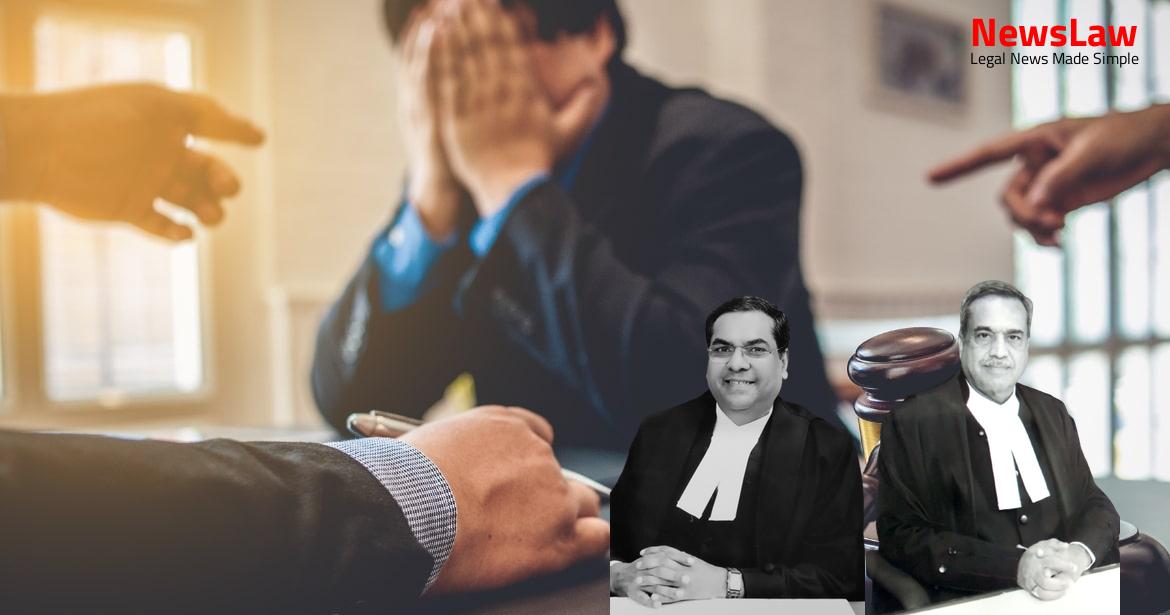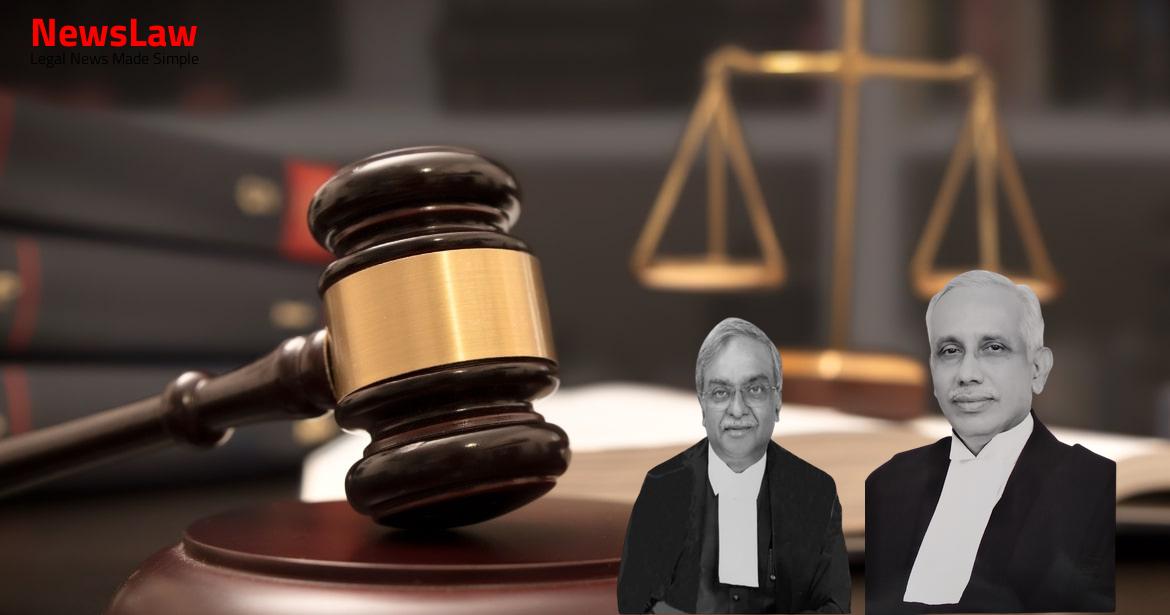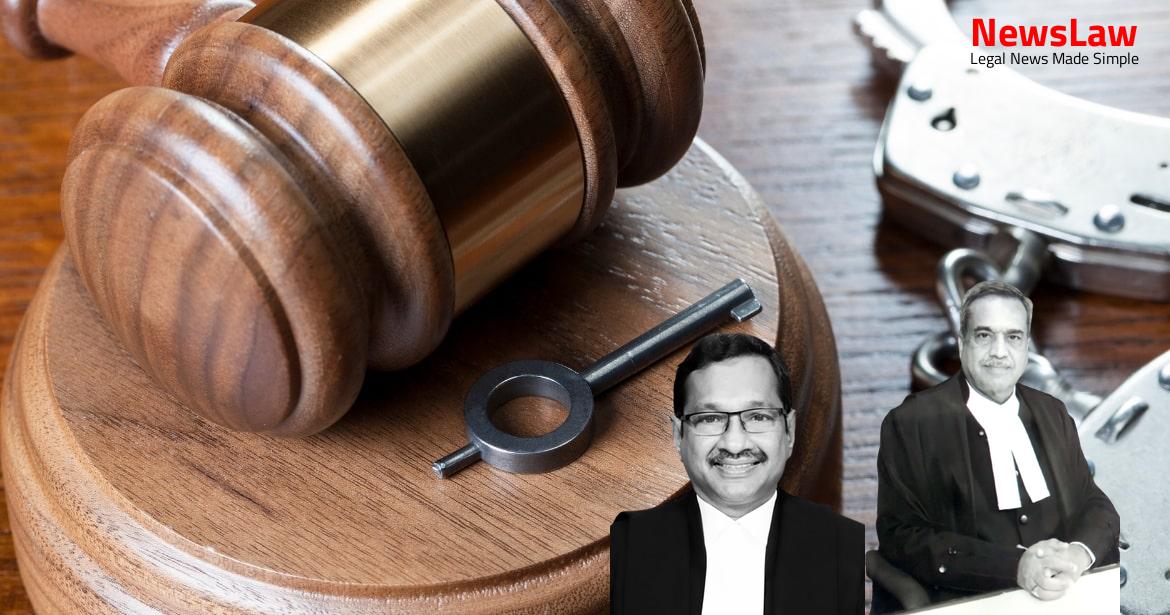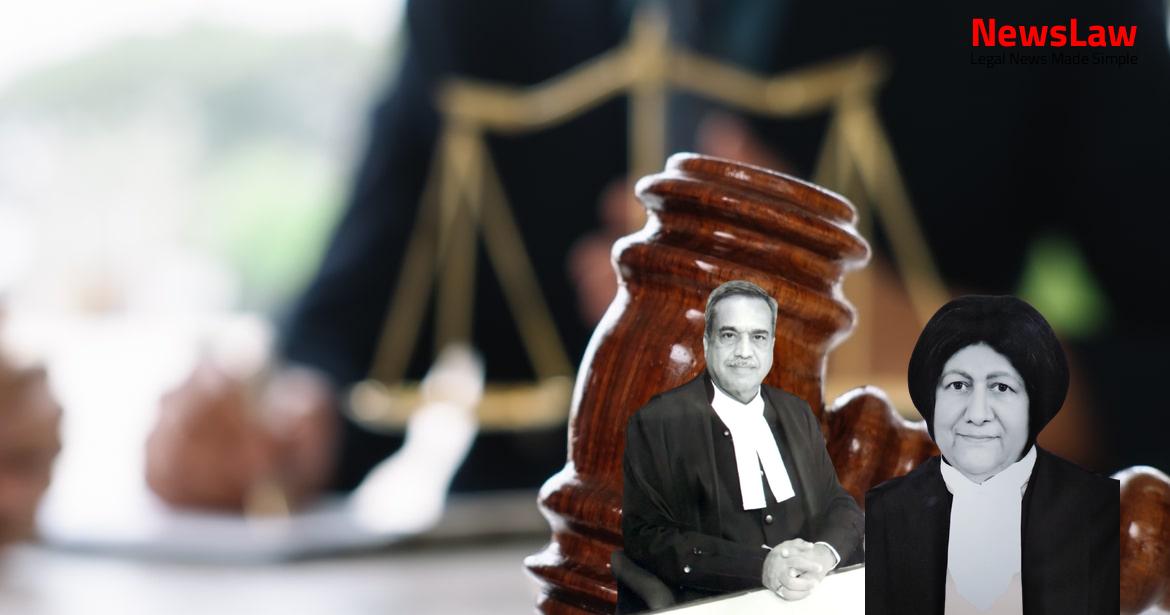Delve into the judicial analysis of delay condonation in second appeal cases, where the court’s legal scrutiny and discretion play a pivotal role. Understanding the nuances of how courts assess and decide on condoning delays is essential in upholding the principles of justice and legal order.
Facts
- The First Appellate Court allowed the suit by quashing and setting aside the judgment and decree passed by the Trial Court.
- The Trial Court had dismissed the suit by judgment and decree dated 23.04.2016.
- The High Court of Andhra Pradesh at Amaravati in I.A. No.1 of 2021 in Second Appeal No.331 of 2021 condoned a delay of 1011 days in preferring the Second Appeal.
- After a delay of approximately 1011 days, the original defendants filed a Second Appeal before the High Court.
- An application to condone the delay was also filed by the original defendants.
- The original defendants applied for a certified copy of the judgment and order on 04.02.2017.
- The certified copy was ready for delivery on 10.03.2017.
- The appellant filed a civil suit for permanent injunction against the original defendants.
Also Read: Upholding Professional Standards in Legal Disciplinary Proceedings
Arguments
- The petitioner argues that the respondents failed to provide a sufficient cause for the significant delay of 1011 days in filing the Second Appeal.
- The High Court, despite condoning the delay, did not acknowledge any explanation for the 1011-day delay in filing the Second Appeal.
- Citing case law examples like Ramlal, Motilal and Chhotelal Vs. Rewa Coalfields Ltd., P.K. Ramachandran Vs. State of Kerala, Pundlik Jalam Patil Vs. Executive Engineer, and Basawaraj Vs. Special Land Acquisition Officer, the petitioner requests that the appeal be allowed based on these precedents.
- The respondent’s counsel defends the High Court’s decision to condone the delay and argues that the discretion exercised by the High Court should not be interfered with by the Supreme Court under Article 136 of the Constitution of India.
- The appellant’s counsel strongly asserts that the High Court erred in condoning the extensive 1011-day delay in filing the appeal.
- Learned counsel for respondent Nos.1 and 2 argue that condoning the delay will enable the appeal to be considered on merits.
- The High Court rightly observed that no prejudice would be caused if the delay is condoned.
- Delay condonation will allow the respondents to present their case on merits.
- It is requested to dismiss the appeal to facilitate a decision on merits instead of a technical non-suiting due to delay.
Also Read: Analysis of Benefits Denial to Daily Rated Employees
Analysis
- Delay in filing the second appeal was sought to be condoned due to health issues and being advised bed rest from 01.01.2017 to 15.03.2017.
- No explanation provided for the delay from 15.03.2017 till the Second Appeal was filed in 2021.
- Decree-holder obtained a benefit under the law of limitation by treating the decree as beyond challenge due to the expired period of limitation.
- Each application for condonation of delay must be decided within the framework set by the Court.
- The delay of 1011 days in filing the Second Appeal was condoned by the High Court with a requirement for the appellants to pay costs.
- High Court did not find any sufficient cause for the huge delay but allowed condonation based on procedural considerations.
- In the application for condonation of delay, gross negligence and lack of due diligence on the part of the appellants were evident.
- High Court noted that condoning the delay would not prejudice the appellant as the appeal would be heard on merits.
- High Court concluded that there was no wilful negligence or want of due diligence on the part of the appellants in filing the belated appeal.
- Laws of limitation are meant to ensure private justice, suppress fraud and perjury, quicken diligence, and prevent oppression.
- Discretion to condone delay must be exercised judiciously based on facts and circumstances of each case.
- Courts are meant to assist the vigilant and not the negligent or sleepy in upholding their rights.
- Delay defeats equity and courts cannot entertain belated or stale claims based on equity.
- In the absence of reasonable or satisfactory explanation for delay, condonation should not be granted.
- Limitation laws are founded on public policy and are essential for public order.
- Courts have no power to extend the period of limitation on equitable grounds if negligence is attributed to the party.
- Impugned order passed by the High Court is unsustainable on both law and facts.
- The present appeal is allowed due to the above reasons.
- The High Court erred in condoning a 1011 days delay in appealing by the original defendants.
- The High Court’s reasoning for condoning the delay was not relevant.
- The High Court did not exercise discretion judiciously in this matter.
Also Read: Legal Analysis in Impleadment Case
Decision
- High Court order dated 16.09.2021 condoning a delay of 1011 days in preferring the Second Appeal by respondent Nos.1 and 2 is quashed and set aside.
- The present appeal is allowed, and Second Appeal No.331 of 2021 by respondent Nos.1 and 2 is dismissed due to the delay in filing.
Case Title: MAJJI SANNEMMA @ SANYASIRAO Vs. REDDY SRIDEVI (2021 INSC 909)
Case Number: C.A. No.-007696-007696 / 2021



